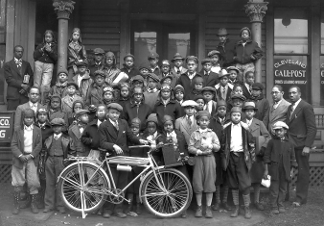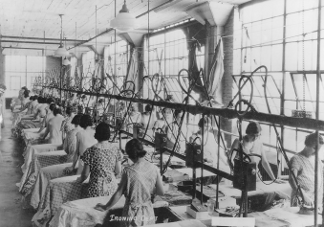GREEN, JOHN PATTERSON (2 Apr. 1845-1 Sept. 1940), the "Father of Labor Day," was born the son of John R. and Temperance Green, free blacks of Newberne, N.C. His family moved to Cleveland in 1857. John left school in 1859 to support his family, studying on the side and publishing Essays on Miscellaneous Subjects by a Self-Educated Colored Youth in 1866. He attended CENTRAL HIGH SCHOOL (1866-69), and in 1870 graduated from Union Law School, moved to South Carolina, and was admitted to the bar. Green returned to Cleveland in 1872 and was elected Republican justice of the peace, the first black elected to office in Cleveland. He held the post for 9 years (1873-82). In 1881 he won election to the Ohio House of Representatives. He was elected to the Ohio legislature in 1890, there introducing the bill that established Labor Day as a state holiday; the U.S. Congress made it a national holiday in 1894.
In 1892 Green was elected to the Ohio senate, that body's first black member. During the 1890s he became closely acquainted with leading Ohio Republicans MARCUS A. HANNA† and GEO. A. MYERS†, and his campaigning for the national Republican ticket earned him appointment in 1897 to the newly created position of U.S. postage stamp agent (1897-1905). He served briefly as the acting superintendent of finance in the Post Office Dept. before leaving government service in 1906 and resuming his law practice in Cleveland. Green published several books and articles: Recollections of the Carolinas (1881); his autobiography, Fact Stranger Than Fiction (1920); and articles for Afro-American News Syndicate. Green was a founding member of St. Andrew's Episcopal Church. Green married Annie Walker in 1869; she died in 1912. In 1912 he married Mrs. Lottie Mitchell Richardson. Green had 4 children from his first marriage: William, Theodore, Jesse, and Clara. He died in Cleveland and was buried in WOODLAND CEMETERY.
Green, John P. Fact Stranger Than Fiction (1920).
Last Modified: 16 Jul 1997 03:30:03 PMJohn P. Green Papers, WRHS.
- Related Article(s)









